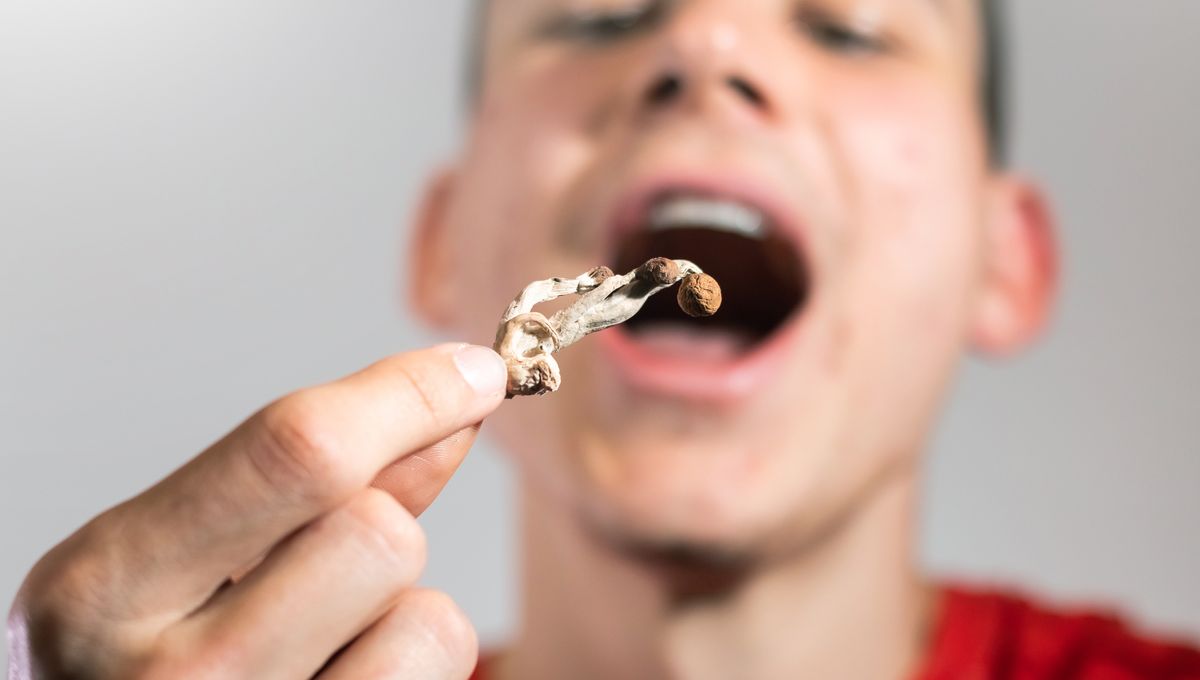
Quiet quitting is an increasingly popular term for employees who “check out” and no longer put in additional effort at work, usually in favor of a healthier work-life balance. Now, new research has identified a curious link between the use of psilocybin, from magic mushrooms, and a reduction in working overtime among employees. The results shine new light on the relationship between psychedelic substances and work-life habits.
Psilocybin is a psychoplastogen, a compound that can promote rapid and sustained neuroplasticity. When taken, the body converts the compound into psilocin, which has a similar structure to serotonin – the neurotransmitter that controls a person’s mood and plays a role in our sense of happiness.
While the compound has long been used for its psychoactive properties, especially its ability to produce hallucinations, researchers are increasingly interested in its potential therapeutic benefits for people living with anxiety and depression. But despite this interest, little work has explored the compounds influence on everyday life. In particular, few studies have considered how the use of psilocybin can impact work habits – more specifically, is there a relationship between the drug and “quiet quitting”?
“Numerous scientific studies have demonstrated that psychedelic drug use is rising in the United States while several media reports have suggested increased use among employees. Because of this, I’m motivated to better understand how psychedelic drug use affects organizations and the workforce more generally,” Benjamin A. Korman, a postdoctoral researcher at the University of Konstanz, told PsyPost.
In the study, Korman drew on publicly available data from the National Survey on Drug Use and Health (NSDUH). Survey participants were selected at random from across the US. In total, over 217,000 individuals aged 18 or above who were in full-time employment between 2002 and 2004 were assessed.
Korman used “lifetime psilocybin use” as an independent variable, which categorized participants as those who had used the compound at least once and those who had never used it before. The dependent variable for this study was “overtime hours worked in the past week”. This was calculated as any time worked over 40 hours – based on the US Department of Labor’s requirements that overtime pay be paid for every additional hour worked above this number.
The study also contained several other variables, including participants’ age, educational level, sex, martial status, business category, annual household income, self-reported engagement in risky behavior, and lifetime use of other substances (cocaine, cannabis, stimulants, sedatives, PCP, MDMA, and heroin).
Before Korman accounted for these variables, it appeared that psilocybin use actually had a positive correlation with increased overtime work. However, once these factors were accounted for, the association essentially flipped and the correlation became negative.
“The results indicate that lifetime psilocybin use is associated with roughly 0.06 fewer hours (or 3.60 fewer minutes) of overtime per employee per week,” Korman wrote in the study.
Korman found that psychedelic use is higher among men who are well-educated compared to the rest of the general population. These individuals often work in industries that are more likely to expect overtime work. Once this was identified, Korman was able to control for these factors, which explained the sudden change in the results.
Generally speaking, those who used psilocybin at least once in their life worked around 3.60 minutes per week less than non-users. On the face of it, this may seem small, but it has bigger implications if considered as a behavior among the 15 million full-time employees in the US who have used this compound.
“Based on the results, an estimated 44,348,400 fewer overtime hours are worked in the U.S. full-time working population per year on account of employees’ lifetime psilocybin use,” Korman wrote.
“Although this finding could initially be interpreted as costly to organizations, it may help explain why employees’ lifetime psilocybin use has recently been linked to a reduction in sick leave absences.”
But before everyone rushes to have a psychedelic trip to change their working habits, it is worth noting that the study has its limitations. Firstly, and most importantly, the study does not establish causality – that taking the compound automatically is actually responsible for this shift in behavior. Secondly, the data used is pretty old, as the employee data for 2015 onwards was not available for analysis. As such, the information may not represent current trends related to psychedelic use or work habits.
Nevertheless, the study demonstrates the importance of considering the use of psychedelic compounds in relation to employment and work-life balance. More information is needed, especially in respect to whether there are differences generated by the user’s motivations – for therapeutic or recreational use.
The study was published in the Journal of Psychoactive Drugs.
Source Link: Magic Mushrooms And Quiet Quitting – Is There A Relationship?